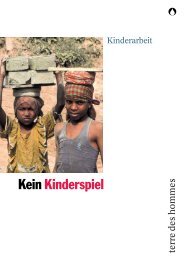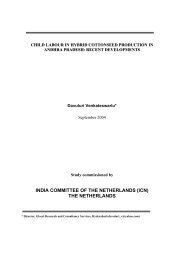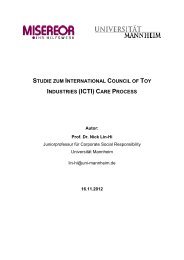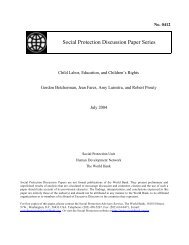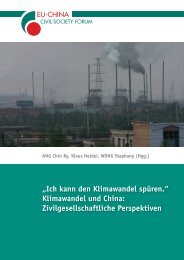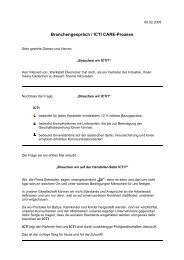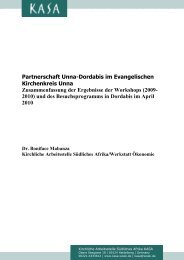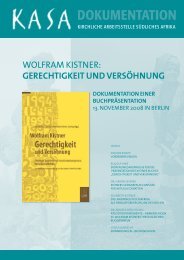Namibia country report
Namibia country report
Namibia country report
- No tags were found...
Create successful ePaper yourself
Turn your PDF publications into a flip-book with our unique Google optimized e-Paper software.
8.7 Building capacityDeveloping and strengthening capacity for informed decision-making by all stakeholdersshould be a priority. Group scheme managers on most of the existing projects do not havetechnical and managerial skills, the exception being the coordinator of the Skoonheid groupresettlement scheme. None of them have a background in agriculture. It is unclear whatcriteria the MLR applies when appointing project managers to resettlement projects, butthere are no apparent educational qualifications. It is recommended that project leaders beeducated in the social sciences or agricultural sciences, and that they be trained for the taskof managing a resettlement project.In addition, building the capacity of resettlement scheme beneficiaries by means of suitableskills training courses would greatly enhance efforts to develop the schemes efficiently. InHardap and Omaheke, resettlement farmers have expressed a need for practical trainingon technical issues, and some feel that they have inadequate management knowledge andskills. In response, established farmers have offered training in breeding, selection, animalhusbandry, infrastructure maintenance, supplementary feeding, rangeland managementand overcoming cash-flow problems, as is currently being provided under the EmergingCommercial Farmers Support Programme (ECFSP).Service providers, together with established farmers, should provide information, adviceand guidance to each prospective emerging farmer before he/she buys a farm in the area. Inaddition, appropriate skills training should be a prerequisite for every prospective AALS,FURS and group scheme beneficiary.Finally, any land reform planning and post-settlement training should incorporate aspectsof water resource management. <strong>Namibia</strong>’s aridity calls for a joint consideration and closeadjustment of land and water issues. In line with <strong>Namibia</strong>’s various National DevelopmentPlans and the provisions of the new Water Resource Management Act of 2004 and Waterand Sanitation Policy (2008), the land reform planning and capacity-building strategiesshould address the need for integrated land and water management. Since land and waterlinkages are an important issue in all activities relating to rural development and themanagement of natural resources, this issue deserves a stronger and more explicit emphasisin future land reform planning and capacity-building strategies.8.8 Improving co-ordinationBetter co-ordination of land reform planning is needed in <strong>Namibia</strong>. Regional land reform andresettlement planning is still undertaken mostly by central government, which often leads toa breakdown in communication or in the flow of information required for proper planning.Partnerships between government, the private sector and civil society at regional level couldeffectively ensure their co-responsibility and accountability for their regional resettlementprogrammes, and directly empower the resettlement beneficiaries to participate in planningand to manage their resources effectively.Livelihoods after Land Reform: Section <strong>Namibia</strong> B ● 8. <strong>country</strong> Policy Implications <strong>report</strong> (2010) ● 175




